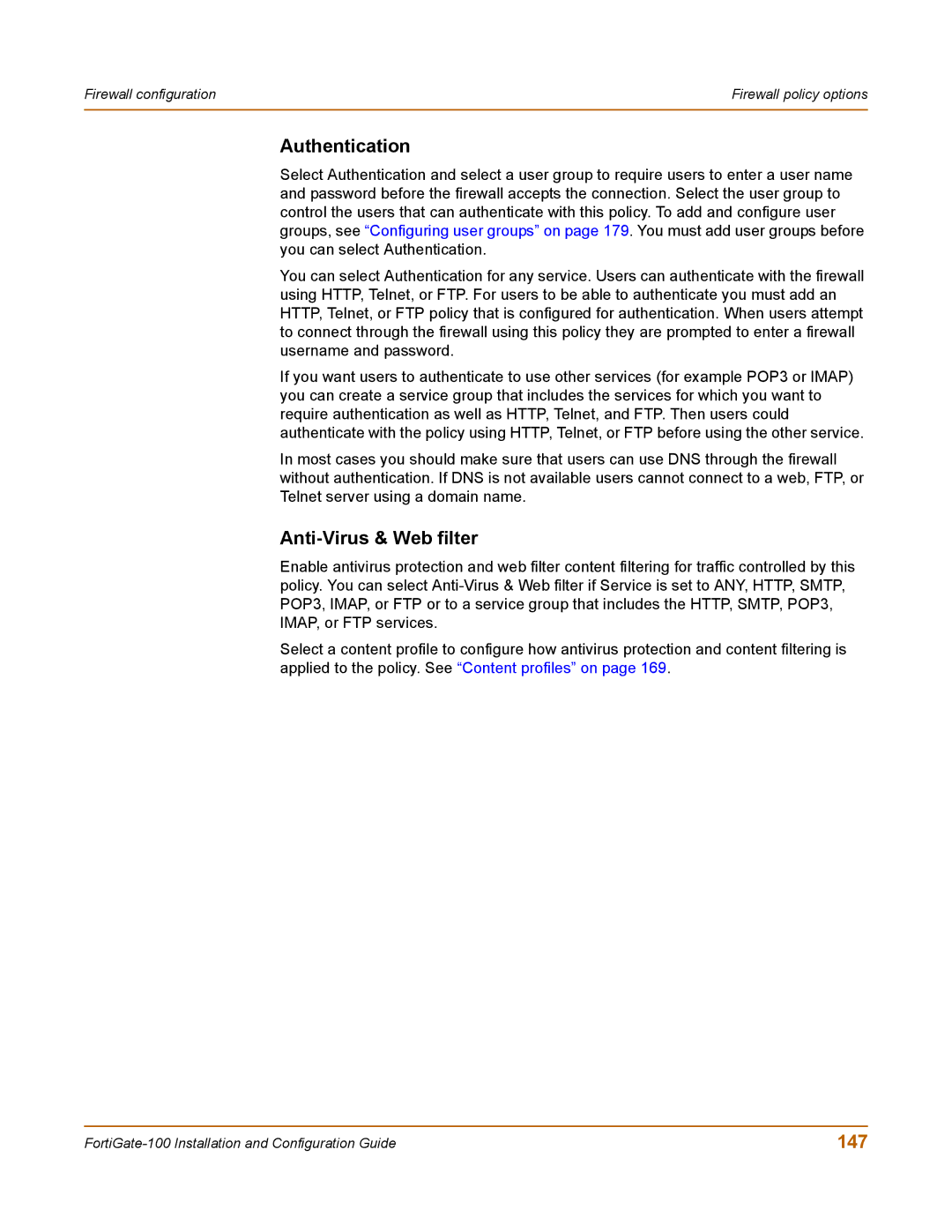Firewall configuration | Firewall policy options |
|
|
Authentication
Select Authentication and select a user group to require users to enter a user name and password before the firewall accepts the connection. Select the user group to control the users that can authenticate with this policy. To add and configure user groups, see “Configuring user groups” on page 179. You must add user groups before you can select Authentication.
You can select Authentication for any service. Users can authenticate with the firewall using HTTP, Telnet, or FTP. For users to be able to authenticate you must add an HTTP, Telnet, or FTP policy that is configured for authentication. When users attempt to connect through the firewall using this policy they are prompted to enter a firewall username and password.
If you want users to authenticate to use other services (for example POP3 or IMAP) you can create a service group that includes the services for which you want to require authentication as well as HTTP, Telnet, and FTP. Then users could authenticate with the policy using HTTP, Telnet, or FTP before using the other service.
In most cases you should make sure that users can use DNS through the firewall without authentication. If DNS is not available users cannot connect to a web, FTP, or Telnet server using a domain name.
Anti-Virus & Web filter
Enable antivirus protection and web filter content filtering for traffic controlled by this policy. You can select
Select a content profile to configure how antivirus protection and content filtering is applied to the policy. See “Content profiles” on page 169.
147 |
